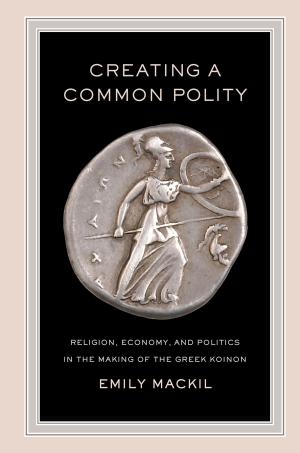Blood for Thought
The Reinvention of Sacrifice in Early Rabbinic Literature
Nonfiction, Religion & Spirituality, Judaism, Beliefs, Practices, & Rituals, History| Author: | DR. S Mira Balberg | ISBN: | 9780520968660 |
| Publisher: | University of California Press | Publication: | September 26, 2017 |
| Imprint: | University of California Press | Language: | English |
| Author: | DR. S Mira Balberg |
| ISBN: | 9780520968660 |
| Publisher: | University of California Press |
| Publication: | September 26, 2017 |
| Imprint: | University of California Press |
| Language: | English |
Blood for Thought delves into a relatively unexplored area of rabbinic literature: the vast corpus of laws, regulations, and instructions pertaining to sacrificial rituals. Mira Balberg traces and analyzes the ways in which the early rabbis interpreted and conceived of biblical sacrifices, reinventing them as a site through which to negotiate intellectual, cultural, and religious trends and practices in their surrounding world. Rather than viewing the rabbinic project as an attempt to generate a nonsacrificial version of Judaism, she argues that the rabbis developed a new sacrificial Jewish tradition altogether, consisting of not merely substitutes to sacrifice but elaborate practical manuals that redefined the processes themselves, radically transforming the meanings of sacrifice, its efficacy, and its value.
Blood for Thought delves into a relatively unexplored area of rabbinic literature: the vast corpus of laws, regulations, and instructions pertaining to sacrificial rituals. Mira Balberg traces and analyzes the ways in which the early rabbis interpreted and conceived of biblical sacrifices, reinventing them as a site through which to negotiate intellectual, cultural, and religious trends and practices in their surrounding world. Rather than viewing the rabbinic project as an attempt to generate a nonsacrificial version of Judaism, she argues that the rabbis developed a new sacrificial Jewish tradition altogether, consisting of not merely substitutes to sacrifice but elaborate practical manuals that redefined the processes themselves, radically transforming the meanings of sacrifice, its efficacy, and its value.















